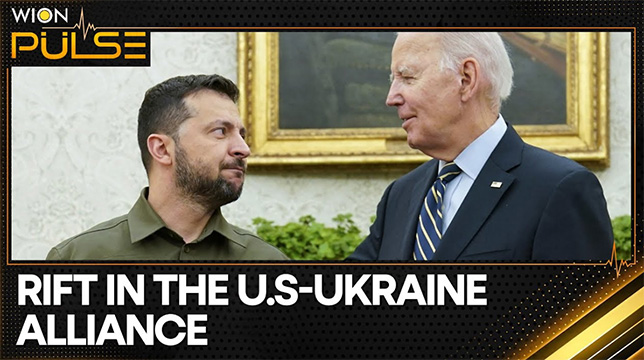
The time between now and the November election will be critical to the outcome of the Russia-Ukraine War, writes ‘The National Interest’.
Numerous clocks are now ticking. Can Ukraine’s military hold its defensive lines in eastern Ukraine?
Can the Russian military bring to bear concentrated force to crack Ukrainian defenses before the winter?
Will the U.S. and other NATO allies permit Ukraine to use the weapons systems they provide to strike deeper into Russia?
Can the Western defense industrial complex get enough equipment into the Ukraine supply pipeline in a timely fashion? Last but not least, who will win the U.S. presidential election and be inaugurated in January 2025?
Aware of these looming deadlines, the Zelensky hopes that the United States and its partners will stop these clocks.
The heart of the Ukrainian victory plan shifts the center of gravity from the battlefields of Eastern Ukraine to Russia’s war-making capabilitiesIt, therefore, requires not only Western permission to use NATO-supplied systems but also enough equipment to deliver swift and significant disruptive blows. It also asks for more precise Western security guarantees to raise the risks for Russia’s escalation calculus in the future.
It is no coincidence that Russian president Vladimir Putin announced changes to Russia’s strategic nuclear guidance precisely during Zelensky’s trip to the United States. Putin maintains that if a non-nuclear state strikes Russia with a massive attack using capabilities supplied by a nuclear state, Moscow reserves the right to view this as an existential threat to its deterrent capabilities and may respond accordingly. Essentially, Putin is saying he will no longer recognize a distinction between Ukraine using a capability and the state that is both supplying that capability and facilitating its use.
First, do they accept the Zelensky theory of victory? Do they accept the feasibility of major disruptive strikes on Russian outposts, installations, and logistics nodes as a way to end the Russian offensive and bring Putin to the table?
Second, do they believe Putin and his statements that the use of Western systems in this manner opens a pathway for escalation?
Finally, do they have confidence that the Western defense-industrial complex will take the latest tranche of aid — which now moves from supplying Ukraine with U.S. stockpiles to providing financial resources for Ukraine to purchase from firms directly — as sufficient stimulus to ratchet up production?
A related question is whether support for Ukraine is, in fact, a major issue for the U.S. elections. Will Vice President Kamala Harris see additional voters come into her column because she supports Ukraine? Will former President Donald Trump — who, in his recent comments, now suggests that Ukraine should have accepted earlier “deals” (including the parameters of the 2022 Istanbul formula) — lose support?
Biden will delay answering these questions until after the November 5 election, when he can take action without impacting the election of his successor. Moscow, in turn, will do what it can to change the facts on the ground in the coming weeks. We are now waiting to see who will run out the clock first.
read more in our Telegram-channel https://t.me/The_International_Affairs

 10:42 05.10.2024 •
10:42 05.10.2024 •






















